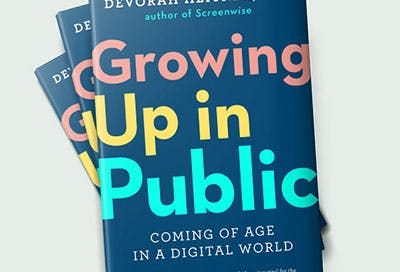How is your summer going? I'm kinda stunned that we're in back-to-school mode here. Suddenly, I find myself entering all the cross-country meets and parent nights into my calendar. 😳
Even though my singleton kid has two parents and we live close to the high school where he's starting 9th grade in mid-August (why??), I can already see some of the logistical nightmares coming our way. I know those details and care tasks can get even more complicated when the ratio of kids to adults is greater.
Speaking of care tasks, I've really been loving KC Davis's TikTok and finally got to read her book, How to Keep House While Drowning: A Gentle Approach to Cleaning and Organization. A perfect book for an imperfect housekeeper with ADHD (me!)
Another super-relatable, late-summer read I'm loving is Nora McInerny's, Bad Vibes Only. As I contemplate how much we track our kids, I love her tale of an incredible canoe adventure with her cousin Fuzz where they were gone for hours on the open water and unaccounted for. Unlike today, where this would have caused a panic, Nora returned to find that they had not been missed. This puts our current level of location tracking our kids into big perspective.
Finally, on the parenting front, my friend Phyllis Fagell's new book, Middle School Superpowers: Raising Resilient Tweens in Turbulent Times is out today! I got a sneak peek and it is excellent!
Why do kids share so much about themselves online? Don’t they care about privacy?
Are you stressing about teens and social media? As we raise kids with social media, figuring out what to share and what to keep private is a nuanced task. When I was a teenager, the taboos against talking about getting mental health support like therapy were overwhelming. Now, we see kids posting about these issues. It makes some parents very nervous!
These are tough issues to talk about face-to-face, and the social norms at most middle and high schools can discourage openness and vulnerability. Instead, the culture at many high schools celebrates being cool, collected, and “chill”—not being so emotional or caring so much about things. For vulnerable kids, the upsides of sharing their true feelings and thoughts in an online affinity space where they are among people with a shared interest or identity may outweigh the risks of disclosing sensitive personal information. While I also want all kids to have access to in-person support, including therapy if needed, I also want parents and educators to understand the ways kids are changing the world for the better by sharing so openly!
Some reasons kids share so openly
One important reason: they want to find “their people” - and being open and honest about themselves makes that easier. Many young people (and many adults) appreciate the sense of community and group support that can come from joining online affinity spaces, like a Discord server for fans of a specific literary genre, or a server for people with a specific diagnosis like dyslexia. Finding a group of people with a shared identity is very supportive–especially for kids who feel marginalized or vulnerable.
And yes, they share things we were taught to keep private. Like neurodiversity, sexuality, and more. In fact, young people are leading the way in destigmatizing conversations about LGBTQ+ identities, mental health, and neurodiversity.
Some of the parents I surveyed for Growing Up In Public mentioned this kind of sharing in relation to neurological diversity. “I don’t think a disability is embarrassing—if they want to share about it, more power to them.” Another wrote, “My son is autistic and very open about it. He was written off by two school systems. I’m proud of how he uses what he’s learned, how he’s built success, in helping others from time to time.”
Other kids share their experiences because they want to engage in activism.
We see kids posting about experiencing and surviving racist aggressions and sexual harassment. Social media can be a space where people come together to support each other, educate each other, and change the world in the face of these experiences.
We can support our kids when they want to share about these issues that we were taught to keep quiet about by encouraging them to share in sincere, meaningful ways and by advising them not to do it without thinking it through.
Read the full post here. And read Chapter 5 of Growing Up in Public: Setting Boundaries: Balancing Discretion and Disclosure in a Tell-All World, for more.
COMING SEPTEMBER 12
Preorder for Limited-Time Bonus Gifts!
Connect with your kids, recognize how to support them, and help them figure out who they are when everyone is watching.
PS. A bookstore has offered a great price on 250-500 books for a community or school district wanting to do a community read. You will get discussion guides and I'll Zoom in for a parent night. Write me back right away if you want to jump on this.





